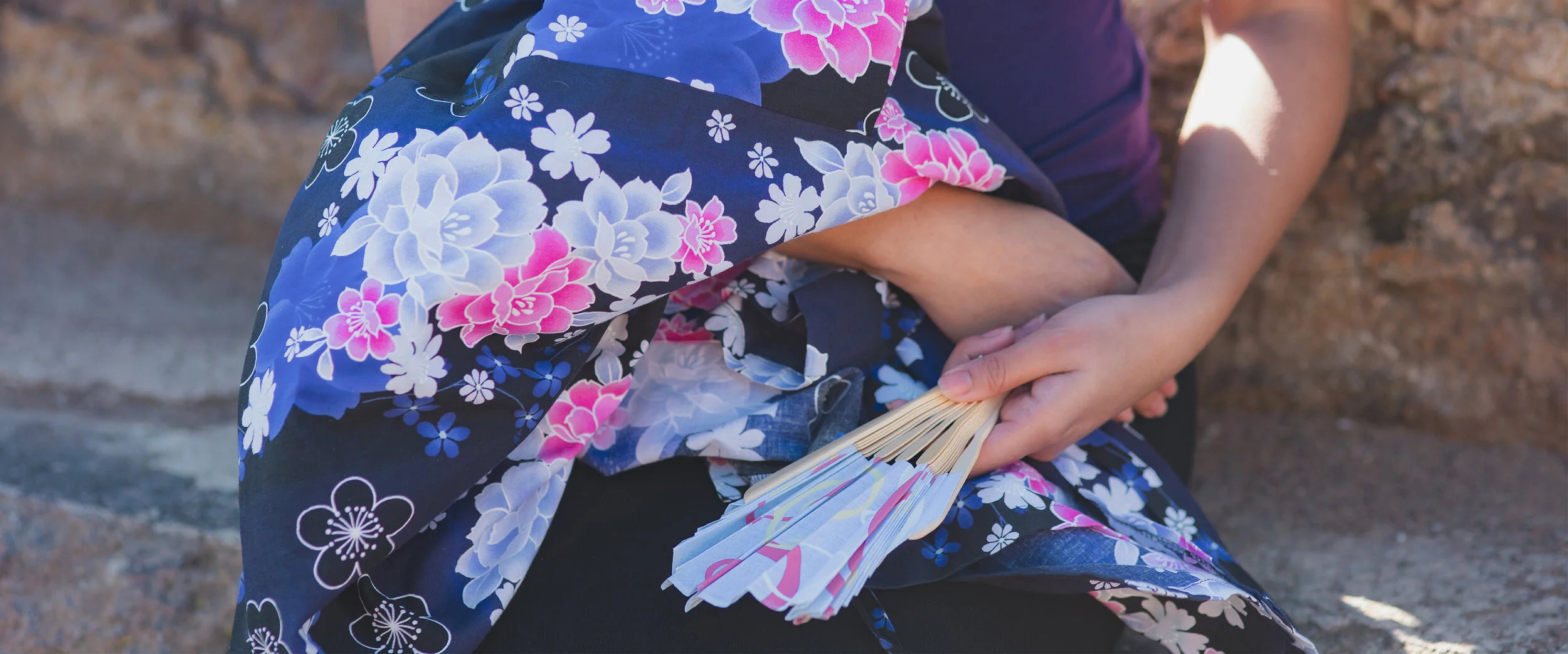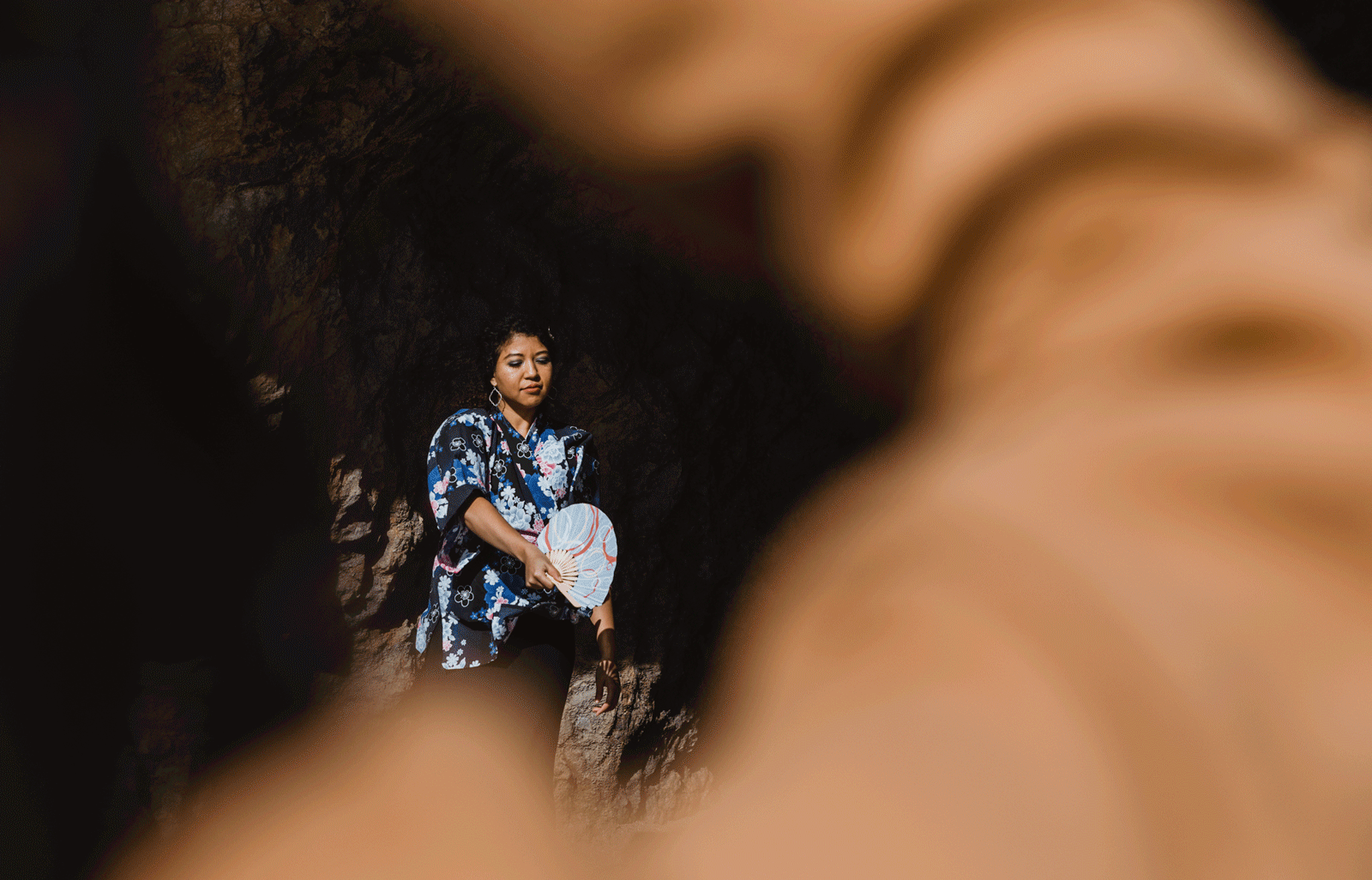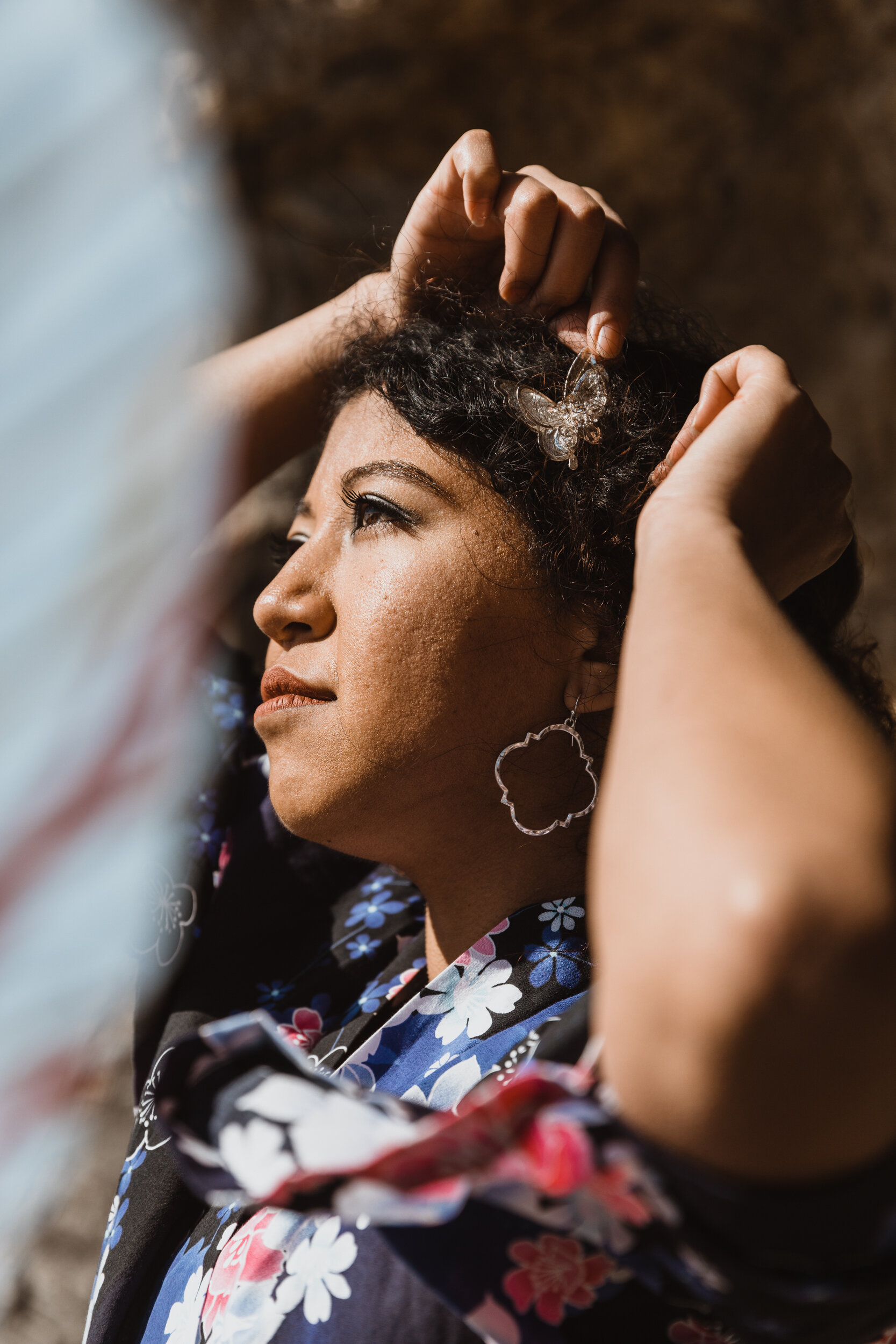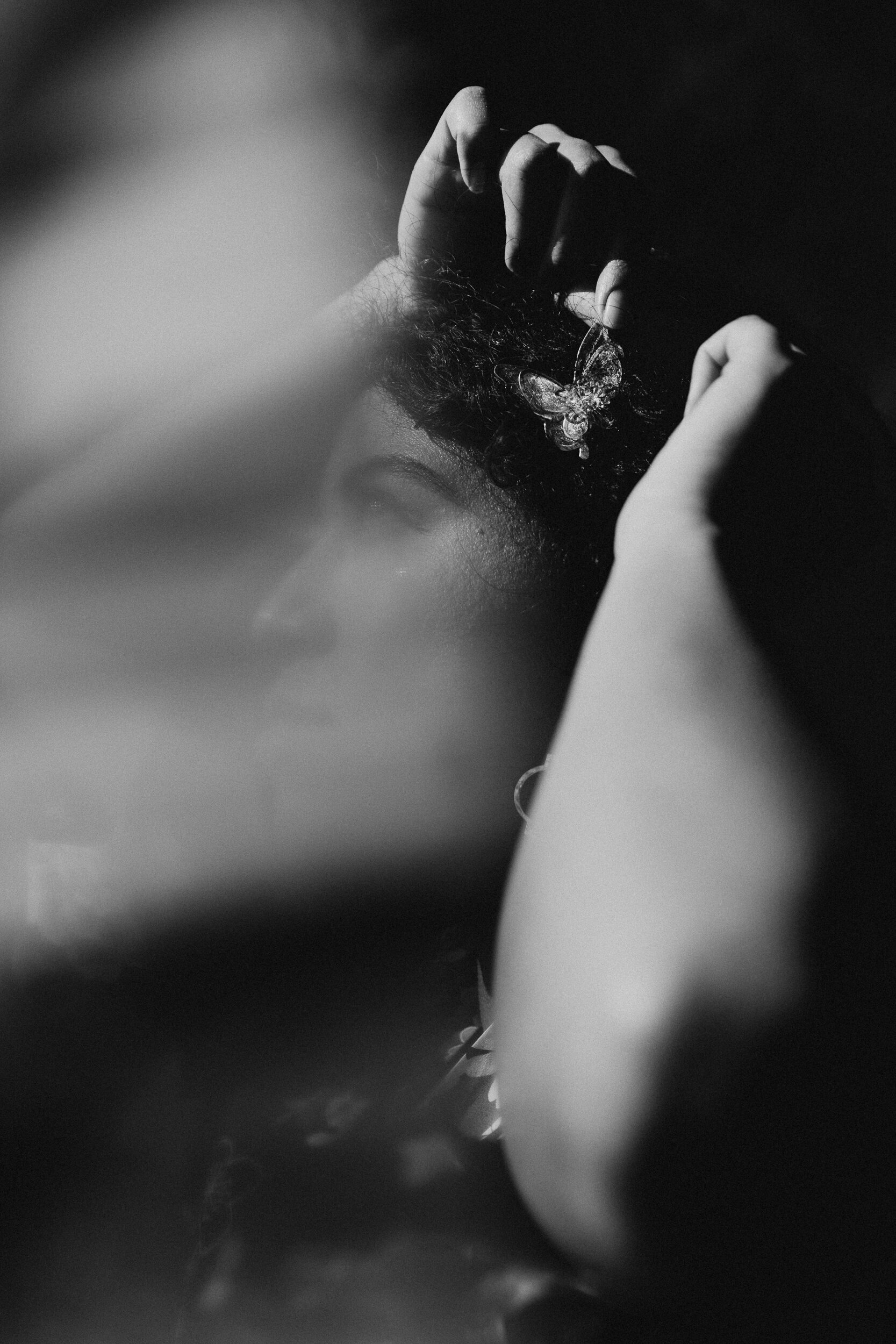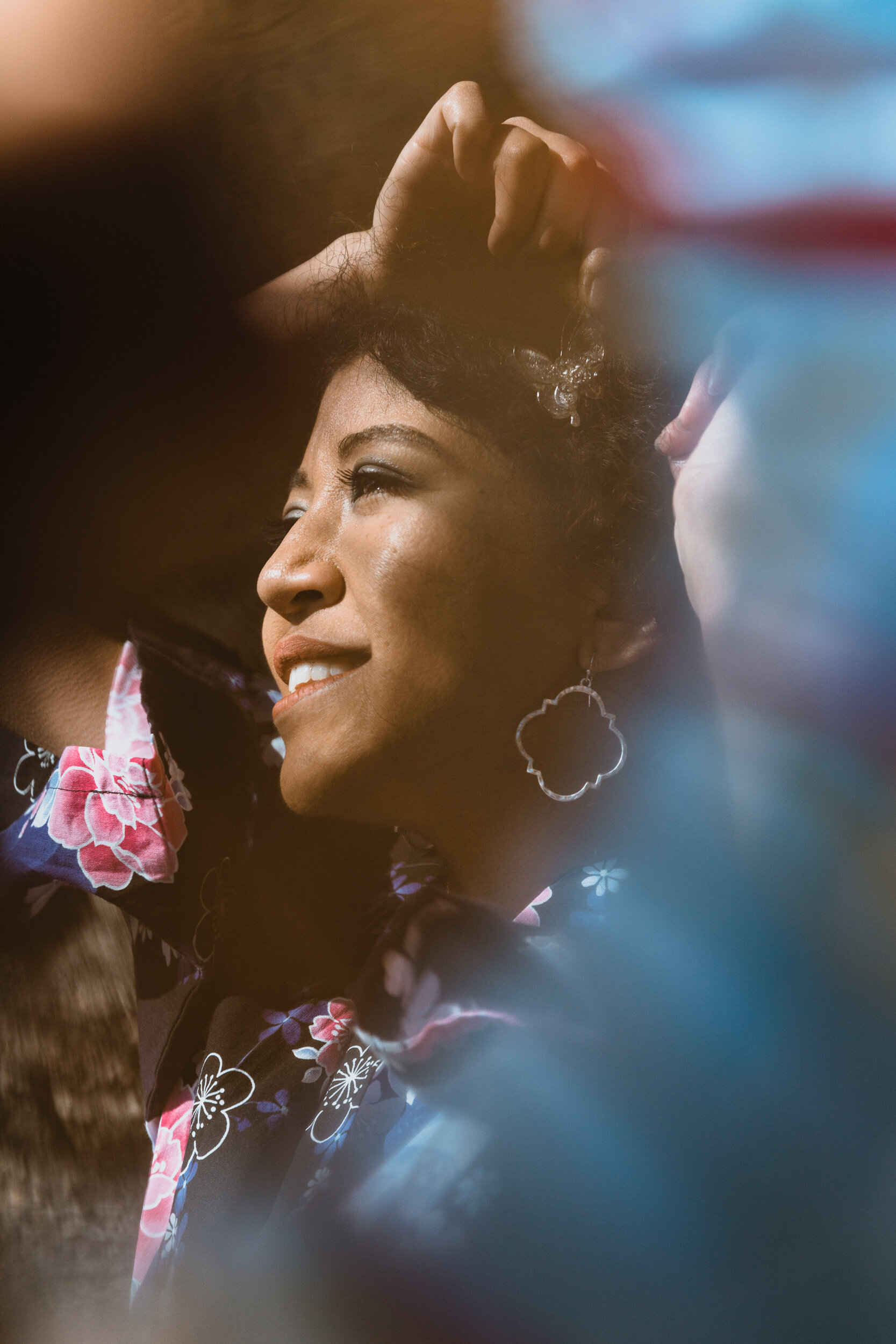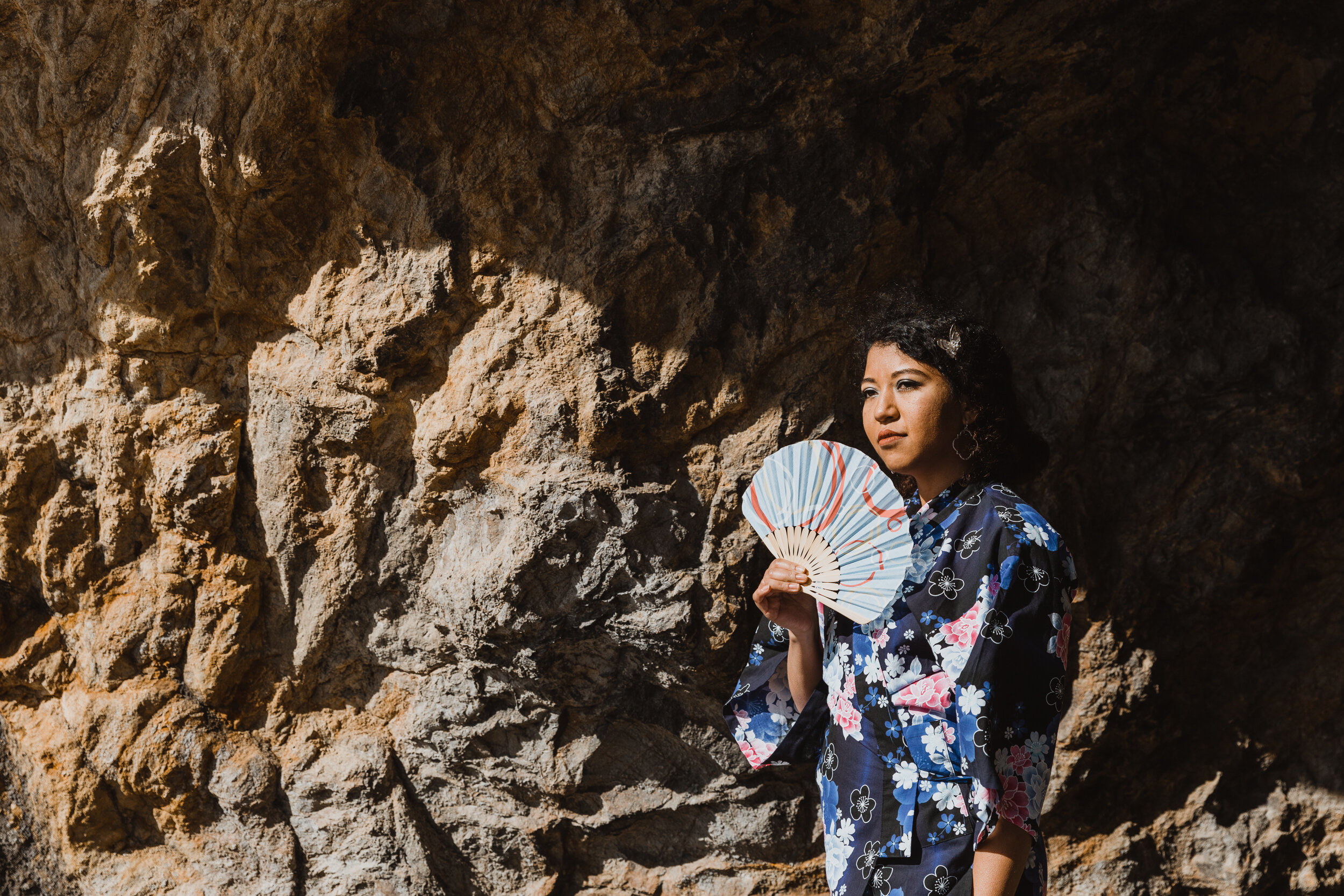TOO MUCH, OR NOT ENOUGH?
learning how to identify as mixed-race
NICOLE ELLIS
japanese, korean, and african american
As a mixed-race Asian American, Nicole has spent her life being asked which culture she identifies with most. Is she more Black, or is she more Asian? It was not until becoming an adult that she realized there was no need to fit within any particular category. Nicole was born into a unique situation, with parents who are also mixed-race. Her father is Japanese American and African American, and her mother Korean American and African American. She believes both her parents’ stories are equal parts of her own identity, and that their experiences have taught her how to understand her place in the world. In some ways, she connects more with Asian American culture, but also desires to identify with her African American heritage. She has license to both, and nothing to prove. A proud Bay Area native, Nicole is an equally proud, all-in-one Japanese, Korean, and African American, and her story highlights the importance of embracing one’s holistic identity.
Q: What do you feel is the biggest misconception about your cultural identity?
A: People have an obsession with categorizing mixed-race individuals like me as either Black or Asian, trying to fit me into a box. I feel like this has happened to me for my entire life, with people making comments like: Where are you from? What’s your ethnic background - you look so exotic. They want to categorize me neatly into something for their gain. And honestly, that’s hard for me. People are always trying to ask me, “Are you more Black or more Asian?”, when really they’re both parts of my identity. Today, I’m sharing my story to address anyone who feels the need to lump me into one category.
Q: Do you feel like you identify as both an Asian American and an African American, or is it more like - I am just Nicole?
A: That’s a tough question for me. I feel like I’ve been thinking about where exactly I fit in a lot more recently. Do I see myself as an Asian American? Am I a mixed-race person? Or am I just me, Nicole? At this point, I honestly lean towards being just me, Nicole, and not wanting to have to categorize myself or prove my identity and worth to anyone else. Coming from a mixed-race background, my experience has been that on both sides of my family, neither of my parents identify super strongly with being Black or Asian. It’s also interesting because I come from a family with both parents being half and half. To me, it’s always just been that together we’re a melting pot of different cultures. This is all just a part of us - it’s a blend. I don’t feel like we’ve said that we’re going to identify more with either or. We are a unique mix of all these ethnicities which are all parts of who we are. My extended family consists of so many ethnic combinations beyond just Black and Asian. Our gatherings at Christmas and Easter include a number of mixed-race families and we all value each other’s cultural diversity and unique backgrounds.
Q: What has been your experience in being accepted by both the African American and Asian American communities?
A: As I’ve gotten older, I have realized that I identify more with the Asian American community through the values I was raised with, the friends that I’m very close to, and the activities I like to do for fun. I would attribute a lot of that to my college experience and the friends I have made. That’s a realization I’ve come to in finding my identity as a young adult - resonating more with the Asian American community.
Q: What environment do you feel has contributed to shaping that perspective on your Asian American identity?
A: My experiences in college, like going to Japan for an internship, helped shape my perspective. I feel closer to the culture because I got to get more in touch with my Japanese side. I was also part of a Japanese club at UC Davis where I had the chance to learn and perform traditional Japanese dance. Being a part of the Japanese club’s dance group helped me a gain a deeper understanding and appreciation of Japanese history and culture. Growing up, I didn’t get to know my Japanese grandmother because she passed away when I was only four years old. Unfortunately, we didn’t stay in touch with that side of our family after she passed away. I still have relatives in Japan, but after my grandmother passed, we lost our main line of communication with them. Through the experiences I chose in college, I was finally able to restore the connection with that part of my identity, which has been really humbling to me.
“Through the experiences I chose in college, I was finally able to restore the connection with that part of my identity, which has been really humbling to me.”
Q: How close do your parents feel to their Asian roots?
A: My mom is actually closer to her Korean side than my dad is to his Japanese side. My parents both don’t speak their native languages, aside from a few words that they learned growing up. As I mentioned, my dad felt like he lost a lot of his connection to his Japanese side after his mother passed away. It’s funny — I feel like I took it upon myself to become more familiar with Japanese food and Japanese culture.
On the other side, my maternal grandmother is Korean and she’s still alive. When we visit her in Monterey, she always makes it a point to make us Korean food dishes to make sure we’re exposed to Korean culture in that way. Every time I see her, I know I’m going to have her homemade kimchi or japchae.
Q: Can you share more about the community and environment you grew up in before college?
A: I was born and raised in San Jose, CA. I still live in the same neighborhood and the same childhood home. It’s an extremely culturally-diverse area, so growing up from elementary school through high school, I was always in classrooms with peers of different ethnic and religious backgrounds. For me, it was cool to be around so much cultural diversity and to also have parents who value that as well. My parents always wanted me to meet people from different cultures and get to know and understand where they come from. Despite the cultural diversity in San Jose, my family was the only biracial Asian and Black family at my elementary school and in our neighborhood. We knew mixed race families but no Black and Asian families. It took some time for my parents to adjust when they first moved to San Jose because they grew up on a military base where they were used to seeing a lot of other Black and Asian families. Though there were not other people with the same mixed ethnicity as me, I never felt singled out as “that one person of color.” People didn’t judge me for the color of my skin. I recognize that it’s a privilege to live somewhere where I can feel safe and comfortable being who I am.
“Being in San Jose’s diverse environment, everyone was really mixed. I was very fortunate to have that experience because I never felt singled out as “that one person of color.” People didn’t judge me for the color of my skin. Not everyone feels safe and comfortable being who they are, so that’s a privilege that I recognize.”
Q: When you ventured out of San Jose, did you feel like you came up against anything different as far as how people perceived you?
A: I haven’t ventured to too many other places, but I have been to Japan, Canada, and a few other states. When I went to Oregon a few years ago, it was very eye-opening for me because living in the Bay Area and attending college in California, I’ve always been used to being surrounded by different cultures around me. Being in a different state like Oregon was a shock - I remember realizing that I was the only person of color in the restaurant. That experience made me have a better appreciation for where I came from.
Q: Have your parents passed down any knowledge about navigating a mixed-race existence?
A: They have. For both of my parents, they have experienced their parents facing a lot of discrimination for being in interracial relationships. My mom’s late father was Black and her mother is Korean. My dad’s late father is Black and his late mother was Japanese. When my grandparents were dating, there was a lot of racism during that time. It was really hard for them to be together because of how society perceived them and even how their own families looked at their relationship. It wasn’t normally accepted for a Black man to be with an Asian woman back then, but their love was so strong that they stayed together despite racial barriers. Interracial marriages in the United States were actually not legal until 1967. My parents have actually experienced similar dating experiences too. If they dated a full-Asian person, oftentimes their partner's parents were not okay with them being half-Black and would not accept the relationship.
Q: Have you experienced anything similar in your dating relationships?
A: Yes, I've had similar dating experiences. Till this day, my parents encourage me when I date to be mindful of how a person's family and their views might bring challenges to the relationship. I’m fortunate because the knowledge my parents have passed down has helped me navigate my own experiences.
Q: So even though you have mostly been accepted in this generation by your Asian peers, do you feel like there are people in the Asian American community who can only see the non-Asian side?
A: Yes, I definitely do feel that way.
Q: To the same tune, do you also feel like some of your African American peers don’t necessarily recognize you right away as an African American or Black person?
A: I do. I’ve had people say things like, “I’m shocked that you’re half-Black. The way you act seems more like a white person would.” People have told me that my family is “white-washed” and that the way my parents behave makes them “seem more white.” Everyone projects these stereotypes of what they think a Black person should or shouldn’t be onto us. I think people just want to find ways to quickly categorize us. My family is my family, and we shouldn’t need to be stereotyped and categorized to fit in with others.
Q: How do you feel like the experiences of navigating through your own lens have shaped you into the person you are today?
A: Experiencing both racial microaggressions about the way I look and people always trying to figure out what I am really do bother me. It’s especially frustrating when that happens in the first interaction I have with someone. This didn’t come into my consciousness until my undergraduate experience. I was a research assistant at the Asian American Center on Disparities Research at UC Davis. The lab I worked in focused on the impact of microaggressions on the Asian American community and honed in on how it affects people’s self-esteem, emotional and physical health. The assistantship equipped me with the awareness that even though I grew up in a culturally-diverse community, I have experienced microaggressions throughout my entire life. My parents have always fostered in me a love of cultural diversity, and so I just wasn’t able to articulate or completely understand what these comments really meant. I think being a mixed-race person helps me relate to other people who have a mixed-race experience and the similar struggles that they might go through in our society. I meet very few people who are half-Black and half-Asian, so it’s awesome when I do meet them. Thanks to my upbringing, for the rest of my life I plan to advocate for the value of cultural differences.
“Thanks to my upbringing, for the rest of my life I plan to advocate for the value of cultural differences.”
EDITOR’S NOTE
June 15, 2020
At More Than Asian, we felt it was important for Nicole to have the opportunity to express her raw reactions to the current climate of the Black Lives Matter movement. Representing both an Asian and Black voice in the community, Nicole is able to share a unique and holistic perspective. As a student counselor, she is also focusing on equity for students of color. We need to remember to listen to Black voices and experiences that exist within the Asian American community.
Q: This year, discrimination against the Black community and Asian community have been brought to the forefront of public conversation. How have you been processing current events?
A: It's been really tough and overwhelming processing the current events. I've felt a range of emotions starting out with fear around the hate crimes and violence towards Asian people, deep sadness and grief about yet another loss of a Black person's life at the hands of police, outrage about the systemic racism and racial violence that is so pervasive towards communities of color, and frustration in response to the apathy and insensitivity I've seen on social media about the fight against systemic racism and police brutality.
At times, I've thought of the struggles and racial barriers that my ancestors have faced, while also pondering my privilege as someone who is half-Black and half-Asian — like having a lighter skin color compared to other people of color.
I've thought a lot about colorism and how that has played a large role in the way I am seen by others, particularly those in positions of power and influence in society — including law enforcement. I've thought a lot about the different forms of systemic racism that exist in every social system including healthcare, housing, education, the criminal justice system and more. I've thought a lot about the ways implicit and explicit bias play a role in perpetrating systems of oppression and widening the gap between different racial groups.
Most importantly, I've started to examine my own privileges, unconscious biases, and think about racial experiences I've had throughout my life. Working in education as a high school counselor, and from research I've done on modern day racism in K-12 education, I've started to channel my sadness and outrage into learning and advocating. I have found many great resources on addressing these tough conversations about recent events, systemic racism, and the toll of racial trauma with students that I am learning a lot from in preparation for the upcoming school year and equity work with my students and school team.
